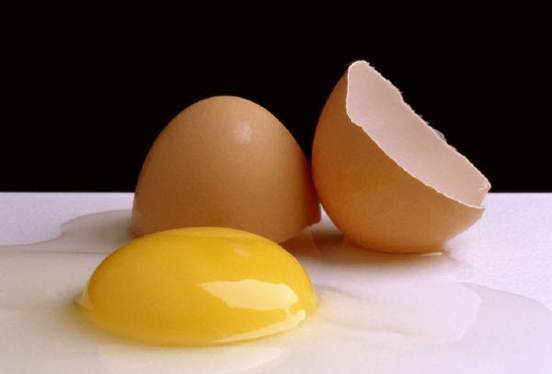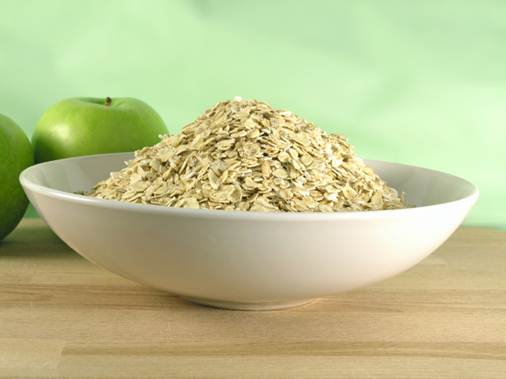Are you tired of the egg diet, or to limit eating shrimp? If
you are avoiding foods because of their high cholesterol, you may need to
rethink your strategy.
Nutrition experts note that while the foods such as eggs are
rich in cholesterol, the effect of cholesterol in the diet for most people is
insignificant compared to the real villain: saturated fats and trans fats. In
addition, a number of cholesterol-rich foods such as eggs are great sources of
protein low-fat, inexpensive as well as many other nutrients.

Eggs are not the
real villain.
Effect of dietary cholesterol
The main point is that dietary cholesterol increases blood
cholesterol levels; however, other factors are more important. For most healthy
people, in general, dietary cholesterol won’t increase blood levels
significantly.

Dietary
cholesterol won’t increase blood levels significantly.
In contrast, that is not necessarily a green light to order
your omelet. The passion of the cholesterol-rich foods can cause others negative
effect, including increased blood pressure in some people.
Cholesterol is lipid, or fat, which is essential for life
and health in moderate volume. The quantity of cholesterol in your blood is
important due to the relationship between high blood cholesterol and
cardiovascular problems, including heart disease. High blood cholesterol can
also be harmful to diabetic and kidney disease’s people.
The National Cholesterol Education Program recommends that
everyone older than 20 years old generally should have a total blood
cholesterol levels less than 200 mg/dL. With LDL, or "bad"
cholesterol, levels should be less than 100mg/dL, and for HDL, the
"good" cholesterol, levels should be 60 mg/dL, which is considered
useful in fighting heart disease.
Levels of triglycerides, a type of lipid, are also very
important. Most healthy people should have triglyceride levels below 150mg/dL.
According to the American Heart Association, dietary
guidelines for Americans recommend that healthy adults should eat less than 300
mg/dL of cholesterol per day. That's why foods like eggs and shrimps attract a
lot of attention. One large egg has about 185 mg/dL cholesterol, while a
3-ounce serving of shrimp has more than 100 mg/dL.
Focus on total fat
The lowering of dietary cholesterol is not a way to reduce
blood cholesterol levels. Pay attention to the overall diet, and focus their
efforts on tracking the absorption of total fat.
Especially, important things are to replace saturated fats,
found in foods such as meats and cheeses in particular, by monounsaturated and
polyunsaturated fats beneficial for better health.
Genetics and lifestyle can play an important role in blood
cholesterol levels. Body produces cholesterol, regardless of cholesterol you eat
more or less. Some people produce more cholesterol than others due to genetics.
Factors such as overweight, lack of exercise and smoking also contribute.
An egg per day?
While eggs have long been considered a public enemy No. 1 in
the fight against high cholesterol, the research shows that moderate egg
consumption - up to 1 egg / day - does not significantly increase the risk of
heart disease in most healthy people. However, experts note that research also
shows that eggs have an increased risk of heart disease in diabetic people.
If someone has other health problem, such as diabetes or
high cholesterol, perhaps he should avoid eating egg yolk, which is where most
of the cholesterol is detected, and instead eating the white envelope.
In addition to their high cholesterol, eggs are often served
with foods such as sausage, cheese and butter which are rich in saturated fats.
But eggs are also high in other nutrients, including vitamins A, D, B complex
vitamins and phosphorus. They also contain lutein and zeaxanthin, which can
increase visual acuity.
If you reduce saturated fat intake, you can reduce LDL
cholesterol levels between 8% and 10%. The best way to reduce or control your
cholesterol levels is an impact on saturated fat and trans fat.
Nutrition experts say that focusing on a level of sugar in
the blood, or a nutrient, is the wrong approach. "The moderation in
everything" is their mantra.
All of us get into trouble when eating too much of
something. Balance and moderation are the main characteristics of diet
beneficial to health.
Foods which improve cholesterol controlling
While much attention is devoted to restrict specific foods
from your diet to control blood cholesterol levels, nutrition experts say the
increased absorption of other foods can also help.
Soluble fiber - found in foods such as oatmeal, beans and
fruits like apples and pears - can help reduce LDL, or bad cholesterol,
according to a spokesman for the American Dietetic Association and also a
nutrition expert.

Soluble fiber can
help reduce LDL, or bad cholesterol.
All of us need to pay more attention to food labels and
ingredients list so that we know what's in the food that we eat. Consumers
should not automatically select one product category to the "low
cholesterol" on the label. It is important to consider the overall food,
choose high fiber content and endeavor to limit added sugars, sodium and total
fat.